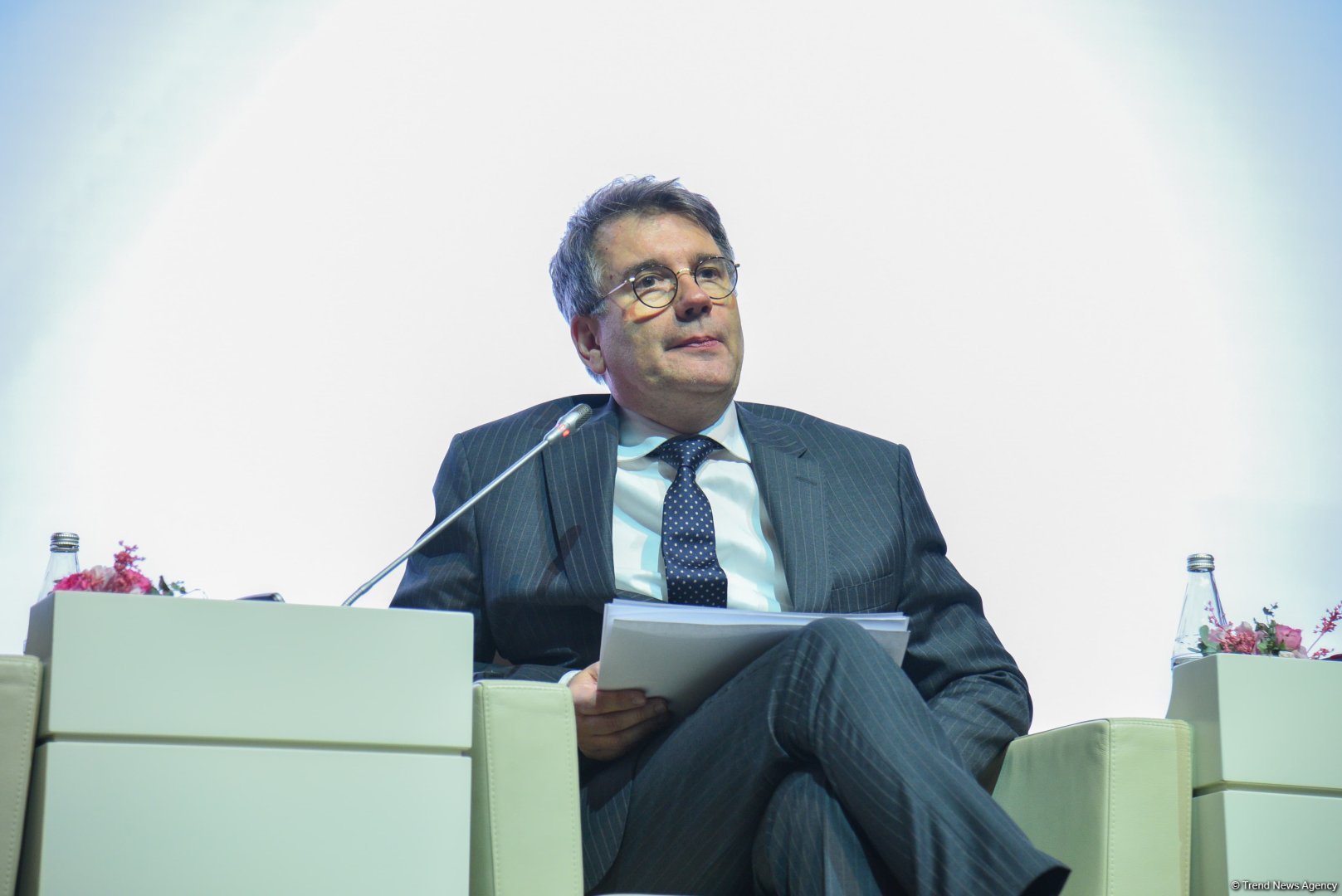BAKU, Azerbaijan, June 4. The Southern Gas Corridor, in which we represent the European segment, serves as a unique route linking current and future gas production, said Luca Schieppati, CEO of the Trans-Adriatic Pipeline (TAP), Trend reports.
Speaking at the 30th Anniversary of the Baku Energy Forum, Schieppati pointed out that the route is a goldmine for major expansion opportunities in the European market, and in recent years, it has played a pivotal role in shoring up the security of Europe’s energy supply.
The CEO added that TAP has even ensured gas deliveries to Moldova during difficult periods.
“We made a strong contribution to today’s priority of diversification. It has also delivered tangible results in terms of market liquidity. Liquidity, in turn, means helping to reduce energy costs for both industry and households.
The figures are clear. So far, we have transported over 47 billion cubic meters of gas to Europe, including 39 billion cubic meters to Italy alone.
I believe this is possible because we rely on Azerbaijan’s stable, sustainable, and uninterrupted gas supply. Azerbaijan has proven to Europe that its gas production is both reliable and resilient,” he said.
Schieppati also noted that TAP introduced competitive commercial offerings to ensure uninterrupted operations and services for clients, and they took full advantage of them.
“The pipeline has not only been used for physical gas flows but also for reverse flows and other commercial opportunities. Today, 45 customers benefit from this infrastructure. A turning point was offering maximum daily transmission capacity through short-term operational flexibility, and we will continue this approach.
In the meantime, as noted, starting from January 1, we will offer the market an additional 1.2 billion cubic meters of capacity. We are working diligently, remaining fully on schedule, and everything is progressing as planned. We are committed to delivering this, and it is a critical milestone for us,” he added.
Looking ahead, Schieppati emphasized that more short-term capacity options will be made available.
“Our infrastructure meets high standards and is distinguished by high-quality design and construction.
To ensure reliability, everything begins with high-standard design and construction, but that alone is not enough. Maintaining top-tier industry standards also requires the integration of innovative technologies. In Albania, a fiber-optic system has been implemented to monitor geological risk zones in real time, and a seismic monitoring system is in place to manage risks in the event of earthquakes.
Drones and satellite imagery are used alongside artificial intelligence and machine learning to assess the condition of the pipeline and maintain the integrity of the assets. A dedicated leak detection system helps prevent failures along the pipeline. A virtual training simulator is used to train staff, particularly the dispatch team, and an electronic platform manages work permits. All of these technologies and innovations contribute to the daily operational reliability of the infrastructure," Schieppati concluded.
Inaugurated in 2003, the Trans Adriatic Pipeline is a natural gas conduit that has been active since 2020, extending from Greece through Albania and the Adriatic Sea to Italy. This is the concluding segment of the Southern Gas Corridor that begins in Azerbaijan. As of 2022, the capacity is 10 billion cubic meters per annum. The natural gas is sourced from the second phase of the Shah Deniz gas field development in Azerbaijan's part of the Caspian Sea, traversing the South Caucasus Pipeline and the Trans Anatolian Pipeline (TANAP). The TAP has received backing from European institutions and is regarded as a "Project of Common Interest" aimed at bolstering energy security and diversifying gas supply for European markets.
Stay up-to-date with more news on Trend News Agency's WhatsApp channel







